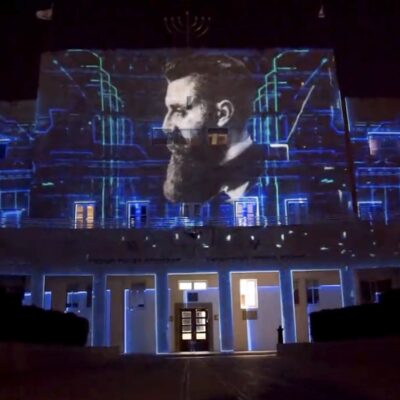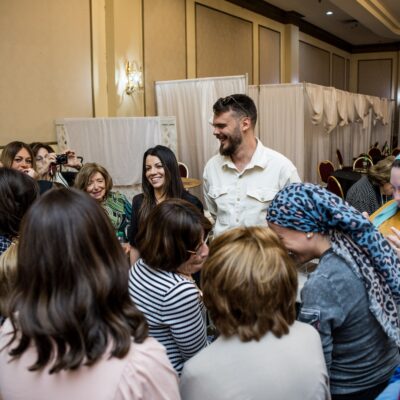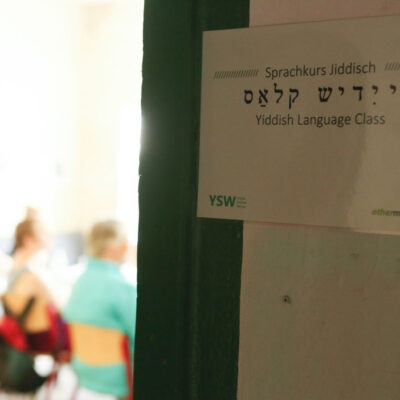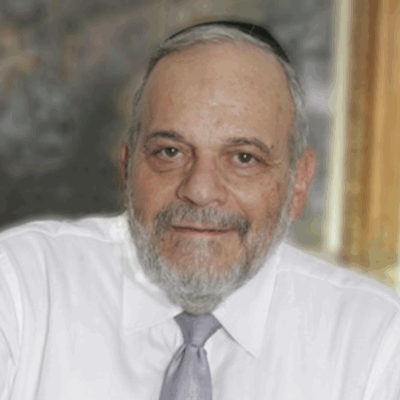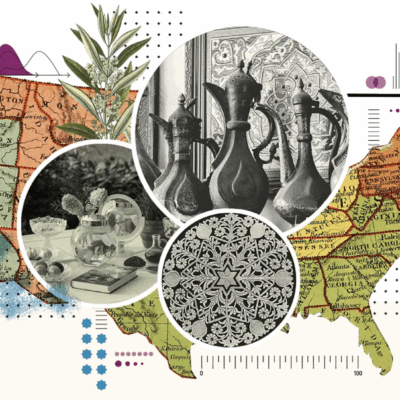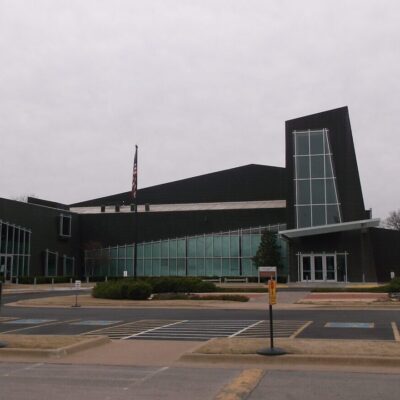Your Daily Phil: Growing interest in Jewish day schools after 10/7?
Good Friday morning.
Ed. note: In observance of Martin Luther King Jr. Day, the next edition of Your Daily Phil will be published on Tuesday, Jan. 16. Shabbat Shalom!
In today’s edition of Your Daily Phil, we report on a Schechter Rabbinical Seminary conference considering how to hold Jewish celebrations during this time of tragedy. We feature an opinion piece by Elisha Baker in response to Monday’s “Goodbye, Columbia”; and an opinion piece by Roei Eisenberg and Scott Lasensky about fostering solidarity between American and Israeli teens. Also in this newsletter: Ambassador Deborah Lipstadt, Lowell Milken and Izabella Tabarovsky. We’ll start with a Prizmah study that found growing interest in Jewish day schools after Oct. 7.
For less-distracted reading over the weekend, browse this week’s edition of The Weekly Print, a curated print-friendly PDF featuring a selection of recent Jewish Insider, eJewishPhilanthropy and The Circuit stories, including: With help from her Dallas community, Israeli teacher reunites her class after student released from Hamas captivity; Amos Hochstein, Biden’s go-anywhere, get-things-done guy, faces his toughest deal yet; How the Israel-Hamas war upended online dating; U.S. ambassador to Lebanon acknowledged Israeli sovereignty over Golan. Print the latest edition here.
More than a third of Jewish day schools and yeshivas in North America have seen a rise in inquiries from parents considering moving their children from public schools or non-Jewish private schools since the Oct. 7 terror attacks in Israel and a subsequent global rise in antisemitism, according to a new survey by the Jewish day school network Prizmah, reports eJewishPhilanthropy’s Judah Ari Gross.
The organization also found that many Israelis who have moved to North America temporarily because of the war are interested in sending their children to Jewish schools. More than 1,000 such students have enrolled in Jewish day schools so far, and interest is growing, the survey found.
“Parents of public and private school students are turning towards Jewish day schools out of a desire for their children to benefit from all that makes Jewish day schools great — an excellent education, a warm, nurturing Jewish environment, and protection from antisemitism they might experience elsewhere,” Paul Bernstein, CEO of Prizmah, said in a statement. “The best defense against antisemitism and hostility to Israel is to nurture strong, confident, knowledgeable Jewish youth and Jewish day schools answer that need.”
More than a third — 35% — of the schools surveyed for the report said they have seen a increase in the number of enrollment inquiries compared to last year, while 14% reported that inquiries are down compared to this time last year.
While this marks a notable increase for public and private school student transfers, the survey found that the far more dramatic influx of students to Jewish day schools have been Israeli children moving to North America temporarily because of the war.
Prizmah found that nearly all of the schools surveyed — 95% — had received inquiries about temporary Israeli students or enrollments; over 2,000 inquiries were made from October to December.
At least 1,037 temporary Israeli students have enrolled in Jewish day schools and yeshivas since the start of the war, requiring additional English language instruction and mental health support, the survey found.
TURN, TURN, TURN

How do you balance the current moment of tragedy, grief and terror with the celebrations of Jewish lifecycle events? To address this question — and others — the Schechter Rabbinical Seminary in Jerusalem organized a day of learning last week, bringing together leading thinkers and some 40 participants, mostly current and former students, reports eJewishPhilanthropy’s Judah Ari Gross.
Disaster and joy: “The title of the day was ‘Yom Assoni, Yom Sassoni’ (‘A Disastrous Day, a Joyous Day’), which is a play on words, but also a quote from a poem by Ibn Gabirol from the 11th century,” Rabbi Chaya Rowen Baker, the dean of the Schechter Rabbinical Seminary, told eJP. “This duality that we carry in our lives at this point — we always carry it, but I think it’s in a heightened way [now] — is expressed by this phrase that shows how close ‘asson’ (disaster) is to ‘sasson’ (joy), in how it sounds and also in our experience, especially when we want to celebrate something in this time of disaster, of great grief and loss,” she said. “And I think that’s part of what makes this time in Israel and in the Jewish world in general so significant and so very different from what we’re used to…. That makes it hard to figure out how to celebrate when the time comes to celebrate.”
Already there: Rabbi David Paran, who attended the event and led a discussion group, noted that tragedy is already baked into many Jewish rituals, such as the remembrance of the destruction of the temples under the chuppah at a wedding, which is “fundamental to the Jewish experience and really to human experience,” he said. “Understanding that suffering and sadness are part of human experience is the only way to experience true joy,” Paran told eJP after the event. “And, in contrast, when we experience tragedy, there is also joy in the past.”
A STUDENT RESPONDS
Jewish ‘safe spaces’ are not the answer

“Recently, prominent leaders in the American Jewish community — including William Daroff, CEO of the Conference of Presidents of Major Jewish American Organizations, and Mark Charendoff, president of Maimonides Fund — have openly called on Jewish students and donors to abandon Ivy League universities due to campus antisemitism and other very real problems with higher education,” writes Columbia University sophomore Elisha Baker in an opinion piece for eJewishPhilanthropy.
Have faith: “We should certainly welcome innovations and disruptions in higher education. It is even possible that these innovations could incentivize some of the most prestigious and powerful universities to address their problems and change for the better. But what I find so surprising — and offensive — is that these Jewish leaders seem to be calling for a mass exodus that amounts to the creation of Jewish ‘safe spaces’ for my generation. I believe these calls for us to run away display both a lack of courage on the part of these leaders and a lack of faith in the resiliency of the next generation of Jewish leaders.
Increasing literacy is key: “I also worry that underlying this ‘give up’ mentality is a deep insecurity about our own narrative. Though it’s the violent rhetoric that makes the news, Jewish students’ feelings of discomfort arise most frequently when they find themselves unable to defend Israel, Zionism or Judaism against simplistic but powerful ideologies that are harmful to Israel and the Jews. In order to address this, the Jewish community must first double down on Jewish education and literacy — young people who do not know their own history cannot be expected to stand strong in the face of those who attack it. We must do a better job teaching Jewish students to get comfortable in the uncomfortable by introducing them to hard questions and language used about Israel before they arrive on college campuses. We should be secure enough in our Zionism to believe that it can hold its own on the ideological battlefield.”
POWER OF CONNECTION
Peoplehood, solidarity and teen engagement in wartime

“Our teens are besieged by damaging content on social media, including Instagram influencers and TikTok ‘experts’ peddling polemics (and products)… Young people need to be informed, no doubt, and credible sources of news and information are more important than ever, but active participation is just as important as passive learning. Offering teens positive, identity-reinforcing pathways to engagement is more critical than ever before,” write Roei Eisenberg, Jewish life vice chair of JFNA’s National Young Leadership Cabinet, and Scott Lasensky, a senior advisor at ENTER: the Jewish Peoplehood Alliance, in an opinion piece for eJewishPhilanthropy.
Bridging the distance: “Started in the early days of the global pandemic, One2One was created to pair Israeli and North American high schoolers to share their parallel experiences in the two epicenters of modern Jewish life. In normal times, the program has proven to be an impactful and enjoyable cross-cultural encounter. Now, in wartime, a program like One2One, which is conducted in English, offers North American teens a way to leverage interaction as first aid.”
Getting involved at home: “Dozens of [solidarity gatherings] have sprung up in the weeks since Israel was attacked on Oct. 7. Many are deeply reverential and wholly apolitical… These and other solidarity displays have sprung up in every Jewish community and volunteers are continuously needed, especially now as the emergency grinds on into its fourth month. Even the simple gesture of donning a solidarity necklace or a solidarity bracelet is a form of meaningful engagement.”
Worthy Reads
Love is a Battlefield: In eJewishPhilanthropy’s sister publication Jewish Insider, Gabby Deutch investigates how the Israel-Hamas war has affected online dating. “After the Oct. 7 terror attacks in Israel, Rose, a 24-year-old graduate student in New York, took a break from dating. She had family and friends in Israel and was too distraught by the attack to log into the apps and navigate the morass of men… When she reopened her dating apps a few weeks later, Rose was stunned to find that the war between Israel and Hamas had transformed the way many men presented themselves in their profiles. ‘I’ll fall for you if…you’re a leftist,’ one man wrote, with a Palestinian flag emoji, on his profile on Hinge, a popular app used by people looking for serious relationships… Much as the Israel-Hamas war has had major ramifications on college campuses and in the workplace, the events in the Middle East have fundamentally changed the experience of dating for many American Jews, particularly those using dating apps. Eleven Jewish singles living in major U.S. cities spoke to Jewish Insider about their experience on the apps after Oct. 7, and they paint a picture of a dating landscape, always fraught, now filled with politically tinged minefields.” [JewishInsider]
Deafening Silence: In The Guardian, Ambassador Deborah Lipstadt, U.S. special envoy to monitor and combat antisemitism, and Ambassador Michèle Taylor, U.S. permanent representative to the UN human rights council, decry the international community’s muted response to the sexual violence committed by terrorists against Israeli women on Oct. 7. “The silence that followed was more than just concerning; it suggests a deeper issue of antisemitism that must be acknowledged and addressed. This apparent reluctance to believe the accounts of Jewish women, a stark deviation from the global commitment to believing survivors and condemning such acts, mimics patterns of Holocaust denial, perpetuating a cycle of antisemitism by furthering the stereotype of Jews as untrustworthy. Such denial of Jewish women’s experiences is a significant anomaly and needs to be called out for what it is: a stark manifestation of deep-seated antisemitism… In the fight for human rights and against gender-based violence and antisemitism, believing women’s voices is not just a matter of justice – it’s a matter of urgent necessity.” [Guardian]
Revolution Stalled: “Secret societies” like Yale’s Skull and Bones have been gateways to the leadership track for generations, reports Rose Horowitch in The Atlantic, but many of today’s students find themselves torn between the progressive views they hold personally and the privilege that participation in these elite clubs entails. “Vanderbilts, Rockefellers, and Buckleys have all been in Skull and Bones. Three Bonesmen would go on to become president of the United States… Yale’s secret societies don’t appear to be going anywhere, but they certainly look different than they used to. And the same pattern is playing out across elite higher education more broadly: These institutions have become more diverse while retaining the trappings of extreme exclusivity. In this sense, the traditionalist grumbling over secret societies’ acts of rebellion is overblown. In everything beyond demographics, the societies have stayed true to their traditions. ‘Everyone talked a really big game,’ one member of the Elihu class of 2019 told me. ‘In the first month of my time in the society, there were people like, We got to burn this place down. We need to mobilize the endowment to redistribute the wealth back to New Haven. And then, inevitably, we all just ended up doing exactly what had been done in years previous, which is doing the bios, hanging out with each other, and a few volunteer things. But it wasn’t anything radical.’” [TheAtlantic]
Around the Web
The New York Jewish Week picked out 10 events by Jewish organizations to honor Rev. Martin Luther King Jr. for MLK Day on Monday…
The Kirschner Trusts at the Oklahoma City Community Foundation awarded $1.6 million to 41 nonprofit organizations that either operate in eastern Oklahoma, offer educational opportunities for people with disabilities or provide Jewish educational and cultural programs. This includes a $1 million grant to establish an endowment for the Oklahoma B’nai B’rith Hillel Foundation, which is conditional on University of Oklahoma Hillel completing its fundraising for a capital construction campaign…
Six Jewish students — five of them unnamed — and the nonprofit Students Against Antisemitism are suing Harvard University, claiming the school created an environment in which antisemitism was allowed to flourish…
Nicholas Dirks, president of the New York Academy of Sciences and a former chancellor of the University of California, Berkeley, argued in a Time magazine opinion piece for greater separation between donors and academics…
Lowell Milken, co-founder and chairman of the Milken Family Foundation, donated $8.05 million to the UCLA School of Law — after donating $3.7 million to the school in 2021 — to establish the Lowell Milken Center for Philanthropy and Nonprofits…
Izabella Tabarovsky, a scholar at the Kennan Institute, found similarities between the current rhetoric around Israel and Soviet propaganda…
The Harold Alfond Foundation, started by a Jewish businessman of the same name, donated $80 million to the University of Maine to improve its athletics facilities…
Edward Jay Epstein, an author who challenged conventional impressions about historical events, died this week at 88…
Pic of the Day

A Jewish National Fund UK delegation visits Kibbutz Kfar Aza, one of the hardest-hit communities on Oct. 7, during a solidarity mission to Israel earlier this month.
The organization has given 13 apartments to house evacuees from Kibbutz Nir Oz. The apartments were initially meant for new immigrants to Israel, but JNF UK decided to use them for evacuees for the time being.
“JNF UK has historically supported Israel and the people in the south, and we will continue to initiate projects to help rebuild destroyed communities and strengthen the bond between the Jewish community in England and the residents of Israel,” JNF UK Chair Samuel Hayek said in a statement.
Birthdays

Retired member of the Senate of Canada, she is the past chair of the UJA of Greater Toronto, Linda Frum, celebrates her birthday on Saturday…
FRIDAY: Real estate and casino magnate, he is a minority owner of the Chicago Bulls and Chicago White Sox, Neil Gary Bluhm… U.S.-born biochemist, he moved to Israel in 1973 after being granted an M.D. and Ph.D. from NYU, winner of the Israel Prize in 1999, Howard (“Chaim”) Cedar… Stephen Moses… Israel-born jewelry designer, editor and businesswoman, she was the first lady of Iceland from 2003 until 2016, Dorrit Moussaieff… Author of over 40 books, most widely recognized for his crime fiction, Walter Ellis Mosley… NYC-based psychiatrist and the medical director of the Child Mind Institute, Harold S. Koplewicz, MD… Radio personality on Sirius XM, Howard Stern… British novelist and grandson of J.R.R. Tolkien (one of the latter’s two Jewish grandchildren), Simon Mario Reuel Tolkien… Senior director of philanthropic engagement at the Jewish Funders Network, Tzivia Schwartz Getzug… Midday news anchor at Washington’s WTOP Radio, Debra Feinstein… Board member and former chair of Hillel International, she is also a vice-chair of Moishe House, Tina Price… Member of the Maryland House of Delegates, he is the nephew of Senator Ben Cardin, Jon S. Cardin… Identical twin comedians and actors, Randy Sklar and Jason Sklar… Filmmaker known for parody films, Aaron Seltzer… First-ever woman to be an MLB coach, now coaching in Dubai, Justine Siegal Ph.D…. Recording artist and musical entertainer, Yaakov Shwekey… Professional golfer, Rob Oppenheim… Two-time Olympian in beach volleyball, now a chiropractor, Josh Binstock… National director of AIPAC’s Synagogue Initiative, Jonathan Schulman… Executive director of the Hillel at Virginia Tech, Amanda Herring… VP of finance and operations at NYC-based Hornig Capital Partners, Daniel Silvermintz… Israeli tennis player, Lina Glushko…
SATURDAY: Marriage and family therapist in Bakersfield, Calif., Kathleen Arnold-Chambers… Las Vegas resident, Cathy Nierenberg… Retired teacher, Lucia Meyerson… NYC pediatrician at Carnegie Hill Pediatrics, Barry B. Stein, MD… Lifelong resident of Greenwich Village, a two-time Emmy Award winner as a television producer, she worked for “NBC Nightly News,” Susanna Beth Aaron… President of the Pritzker Traubert Foundation, Cindy S. Moelis… Actress and producer, winner of 11 Emmy Awards, she is best known for “Saturday Night Live,” “Seinfeld” and “Veep,” Julia Louis-Dreyfus… Kaileh Lynn Pistol… Founder of the Freelancers Union, she was a MacArthur Fellow in 1999, Sara Horowitz… Partner in King & Spalding, he served as deputy attorney general of the U.S. following 12 years as U.S. attorney for Maryland, Rod J. Rosenstein… Ashkenazi chief rabbi of Israel, Rabbi David Baruch Lau… Executive assistant to the president and CEO of the National Council of Nonprofits, Bruce Maclver… Senior fellow at the American Enterprise Institute, Kenneth M. Pollack… President and CEO of Amazon, Andrew R. Jassy… Social media professional, Heidi Krizer Daroff… Statistician and writer who analyzes sports and elections, Nate Silver… Former VP of donor relations at The Jewish Federation of Greater Los Angeles, now a marriage and family therapist, Shira Berenson Feinstein… Research fellow at the University of Denver, Carly Freedman Schlafer… Rebecca Seider… Sandra Shapiro…
SUNDAY: Chairman emeritus of the publicly traded Empire State Realty Trust, Peter L. Malkin… Retired travel counselor, Barbara Singer-Meis… Washington Nationals baseball fan known as Rubber Chicken Man, Hugh Kaufman… Award-winning legal affairs correspondent for National Public Radio since 1975, focusing primarily on the U.S. Supreme Court, Nina Totenberg… Screenwriter, director and producer, best known as co-writer of the films “The Empire Strikes Back,” “Raiders of the Lost Ark” and “Return of the Jedi,” Lawrence Kasdan… Orthopedic surgeon, inventor and philanthropist, Gary K. Michelson, M.D.… Painter, editor, writer and book artist, Susan Bee… Co-founder and chairman of the Pritzker Traubert Foundation, which he manages with his wife Penny Pritzker, Bryan Traubert… Shaul Saulisbury… Former president of the Sprint Foundation and Sprint’s 1Million Project Foundation, Doug Michelman… Former member of the Knesset for the Likud party, she holds a Ph.D. in criminology, Anat Berko… Founding member of LA-based law firm, Klee, Tuchin, Bogdanoff & Stern, Michael L. Tuchin… Actress and film producer, Kerri Lee Green… Staff writer at The New Yorker, Susan B. Glasser… Venture capitalist and entrepreneur, Adam R. Dell… Movie and television producer and co-founder of Electric City Entertainment, Jamie Patricof… Sales associate in the Montclair, N.J., office of Coldwell Banker Residential Brokerage, David Frey… Attorney at Toronto-based Sokoloff Lawyers, Aryeh Samuel…


